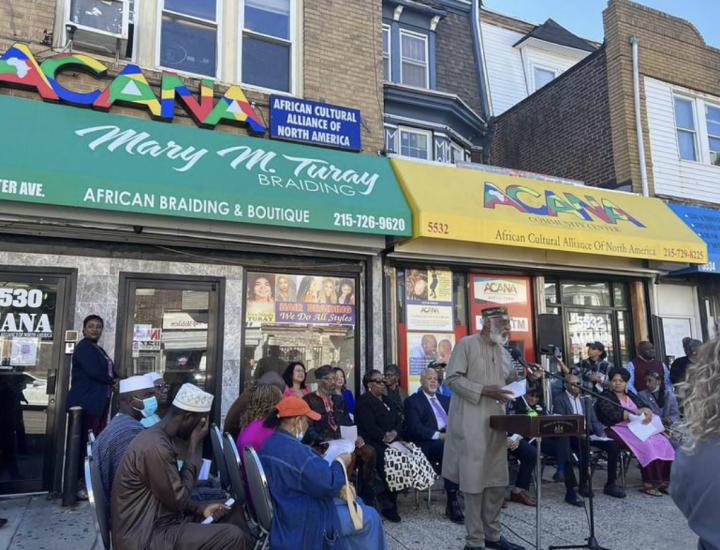GPA team gets a tasty preview of ACANA’s new Africatown Food Tour
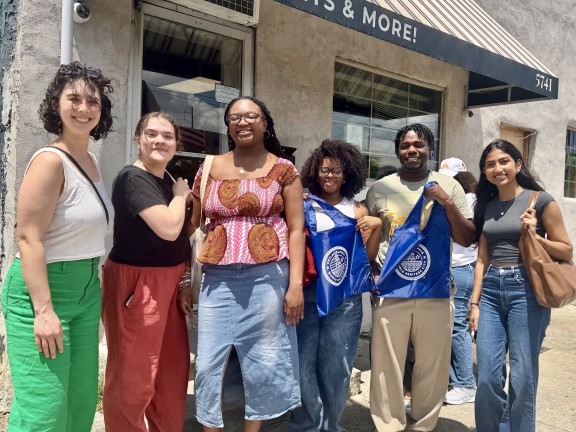
On most afternoons, the staff at Simply Good Food enjoys the calm after a busy morning at their bustling, family-owned diner — a fixture of Southwest Philadelphia for 45 years and counting.
But last Thursday, a new crowd of patrons sat down to enjoy a meal at the colorful, homey spot on Philadelphia’s Woodland Avenue. The group was about to embark on a preview of the African Cultural Alliance of North America’s (ACANA) newest food tour, and Simply Good Food was just the first stop.
“Our customers love sitting in because it’s such a family-oriented place,” owner Theresa Kelsey explained to the tour participants — including several Global Philadelphia Association staff members. “They’ll come in here, stay for hours and meet up with their friends and just talk.”
GPA and other community organizations joined ACANA Communications Director Kou Dolo Thursday afternoon for a preview of the Africatown Food Tour ahead of its public launch. Over the two-hour excursion, participants tasted food from four local eateries on Woodland Avenue — Simply Good Food, Jam-Rock, Oteri’s Italian Bakery and African Small Pot.
Participants also spoke with business owners, explored the area’s history and learned how the Africatown Initiative aims to develop the predominantly African and Caribbean neighborhood.
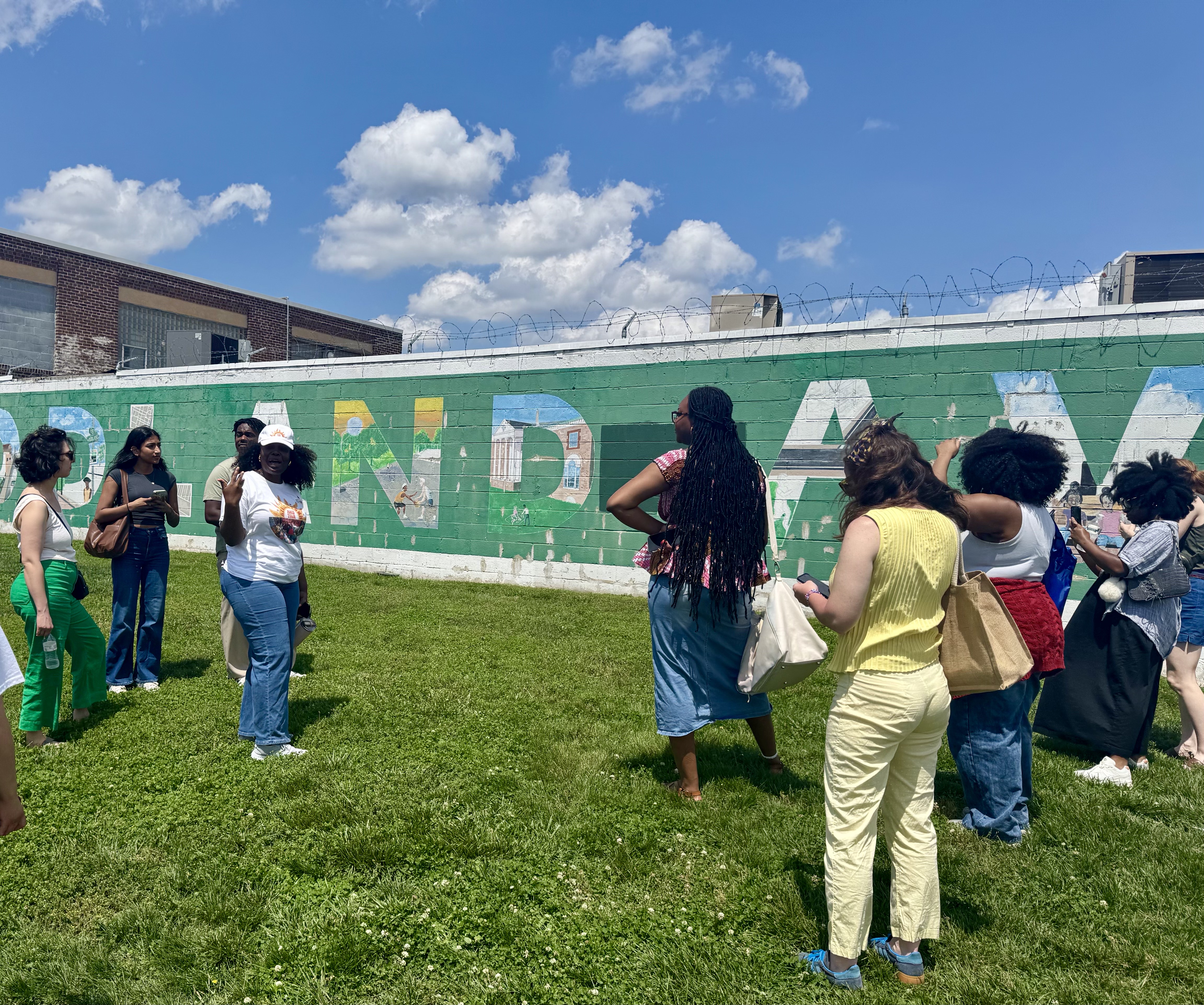
Since GPA’s journey through Africatown’s food scene, ACANA has opened the experience to the public through a partnership with WeVenture. The first public tour was held on June 25. Dolo said ACANA also collaborated with Visit Philadelphia — the city’s official tourism marketing organization — to launch the tour, which now has a feature on its website.
Multiple GPA members attended the tour preview, as the association has partnered with ACANA’s Africatown project for over five years. Since then, GPA has highlighted ACANA projects on its website, co-hosted events with them for World Heritage Week and continued to support their mission. Our team said they found it powerful to learn about the “deep roots” of Philadelphia’s robust African through the lens of “food and storytelling.”
“We do a lot of different initiatives in Southwest Philadelphia, which includes job creation, beautification, renovation, building revitalization and all sorts of things. So on this tour … we’re going to learn some background histories about the restaurants” Dolo said to tour-goers at the event’s start. “Let’s have fun and ask questions.”
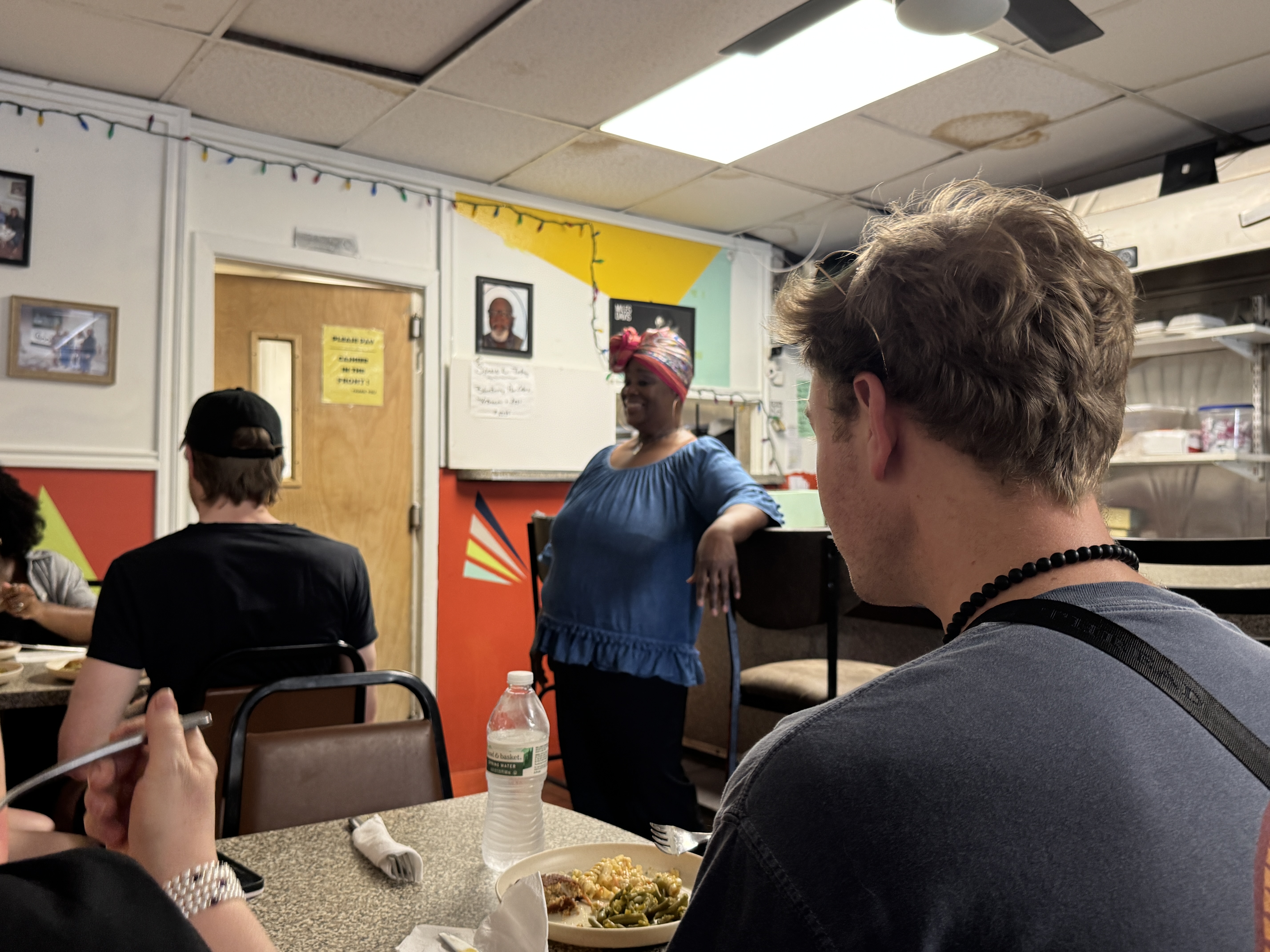
The first dish on the menu was a fried salmon cake paired with pasta salad and steamed green beans — a typical example of the “good simple eats” the diner has served for decades. While the restaurant features a well-established menu of classic homemade dishes from the American South, Kelsey said she’s always open to suggestions from her loyal community customers: “If you name it, we have it,” she said.
Painted on the side of the restaurant sits a mural titled “Bridging the Gap” — a vibrantly-colored artistic representation of the collaboration between Southwest Philadelphia’s African immigrant and Black American communities. The painting portrays multiple figures, including Kelsey’s mother — Simply Good Food’s founder — and ACANA CEO Voffee Jabateh, among others.
Glances into the arts and culture of Africatown were also peppered throughout the culinary experience. While on their way to the second destination, the tour group posed for a photo near the street’s iconic “Woodland Ave” mural. Throughout their walk, they passed the multicolored Africatown flags that now line the street and later stopped at an African fashion boutique.
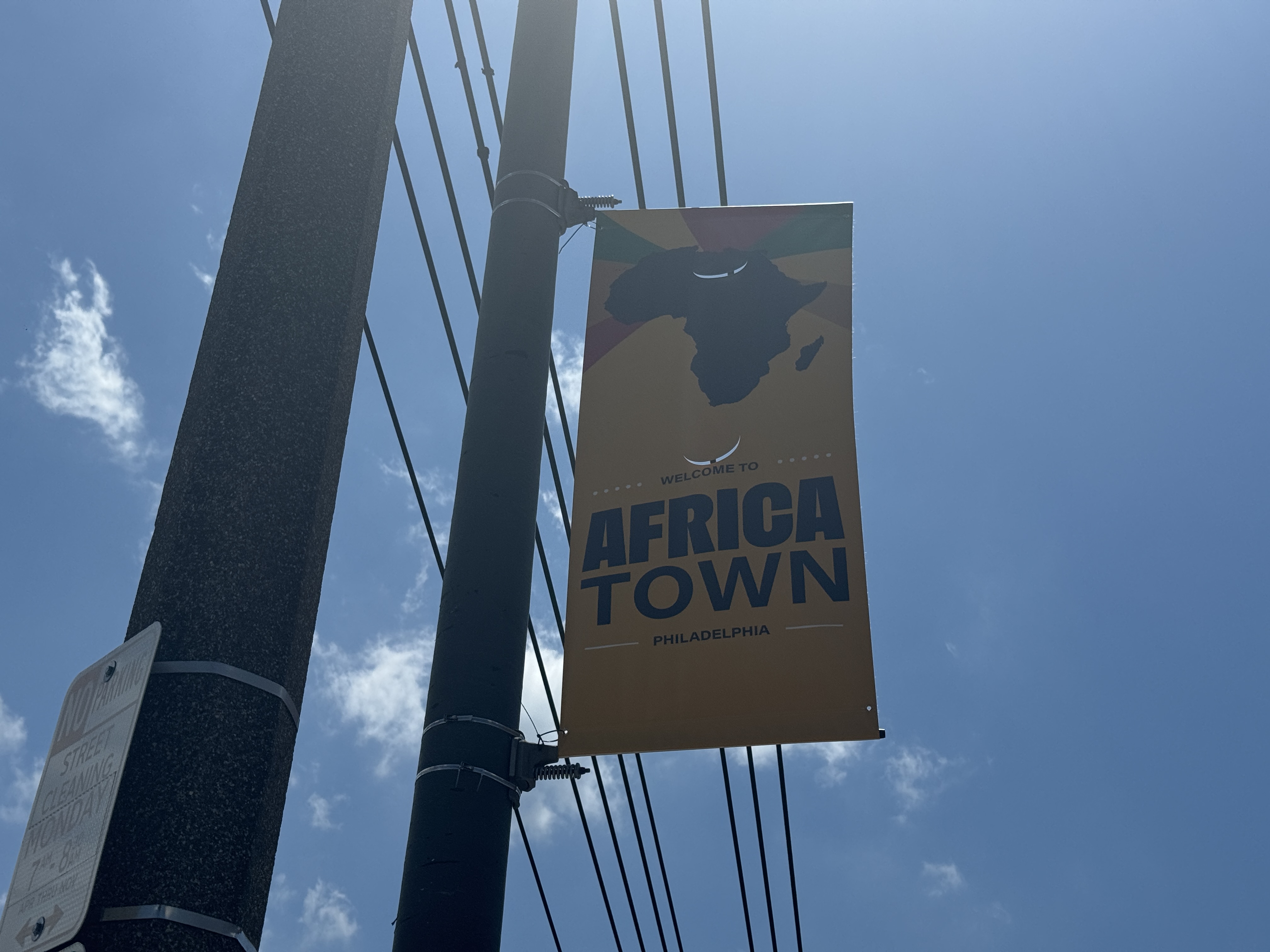
Their second stop was Jam-Rock, a Jamaican halal restaurant owned by Umar Waite. He served the restaurant’s most popular dish: oxtail stew over rice and vegetables — a staple of Jamaican cuisine that he once described to Philadelphia Magazine as a nostalgic reminder of his childhood in Montego Bay. He credits his mother and grandmother, who “were also good cooks,” for inspiring his decision to pursue a career as a chef.
When asked about his secret oxtail recipe, Waite smiled and said: “I have a technique.”
Next, the group walked just a block and a half down to Oteri’s Italian Bakery, a family-owned Philadelphia staple for over 120 years. As attendees entered the bakery, they were greeted by the colorful red walls and glass display cases filled with sweets, and Irene, a loyal employee for over a half a century, greeted the guests enthusiastically and shared stories of working with multiple generations of Oteris.
On the front counter sat brown paper bags, each filled with a cream-and-chocolate-chip-filled cannoli, which many participants eagerly enjoyed as a sweet interlude after two savory meals.
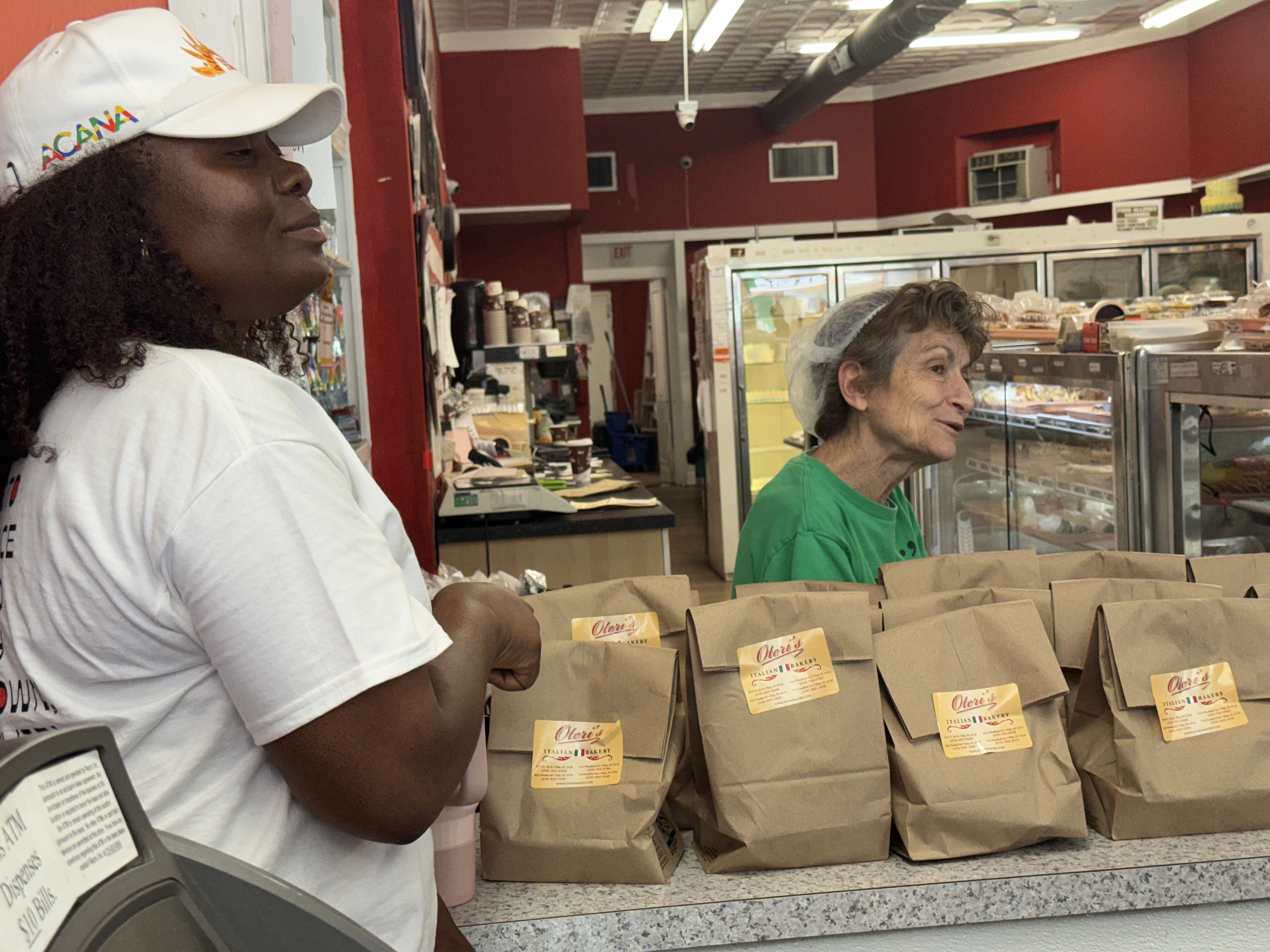
“Enjoy the cannolis. It’s really good and has a very crispy shell. And the cream’s really tasty … I’m not just saying that because I work here,” she joked. “I don’t even eat half the stuff anymore because I’ve been here over 55 years — too much of a good thing, you know?”
As the group made their way to the final destination, one of GPA’s staff members — Yann Awede — began noticing parallels between Africatown and her own community back home in Côte d’Ivoire. While Yann said she has some extended family in Southwest Philadelphia and sometimes orders from its local restaurants, going on the tour helped her better understand the African diaspora’s ties to Philadelphia and to Black American heritage.
Yann said her favorite meal on the tour was at the final stop, African Small Pot, a small eatery serving traditional West African cuisine alongside Italian and American dishes. She said the dish — a plate of jollof rice topped with chicken, fish and plantains — also inspired a fun conversation with new GPA intern Saijatu Conteh, who is from Sierra Leone.
“There really is a connection between this area and back at home. You will always find people in front of stores, whether they’re in or outside, just talking. There’s this sense of community,” Yann said. “You can just go into a store and, even if you don’t know the person, they will just be so warm to you — which is also characteristic of my home country.”
Saijatu also said the close-knit feel of Africatown “reminded me of back home.” Though thousands of miles from Sierra Leone, she said the district felt like a place where she could hear someone speaking one of her native languages, eat food similar to what she grew up with and “find my people.”
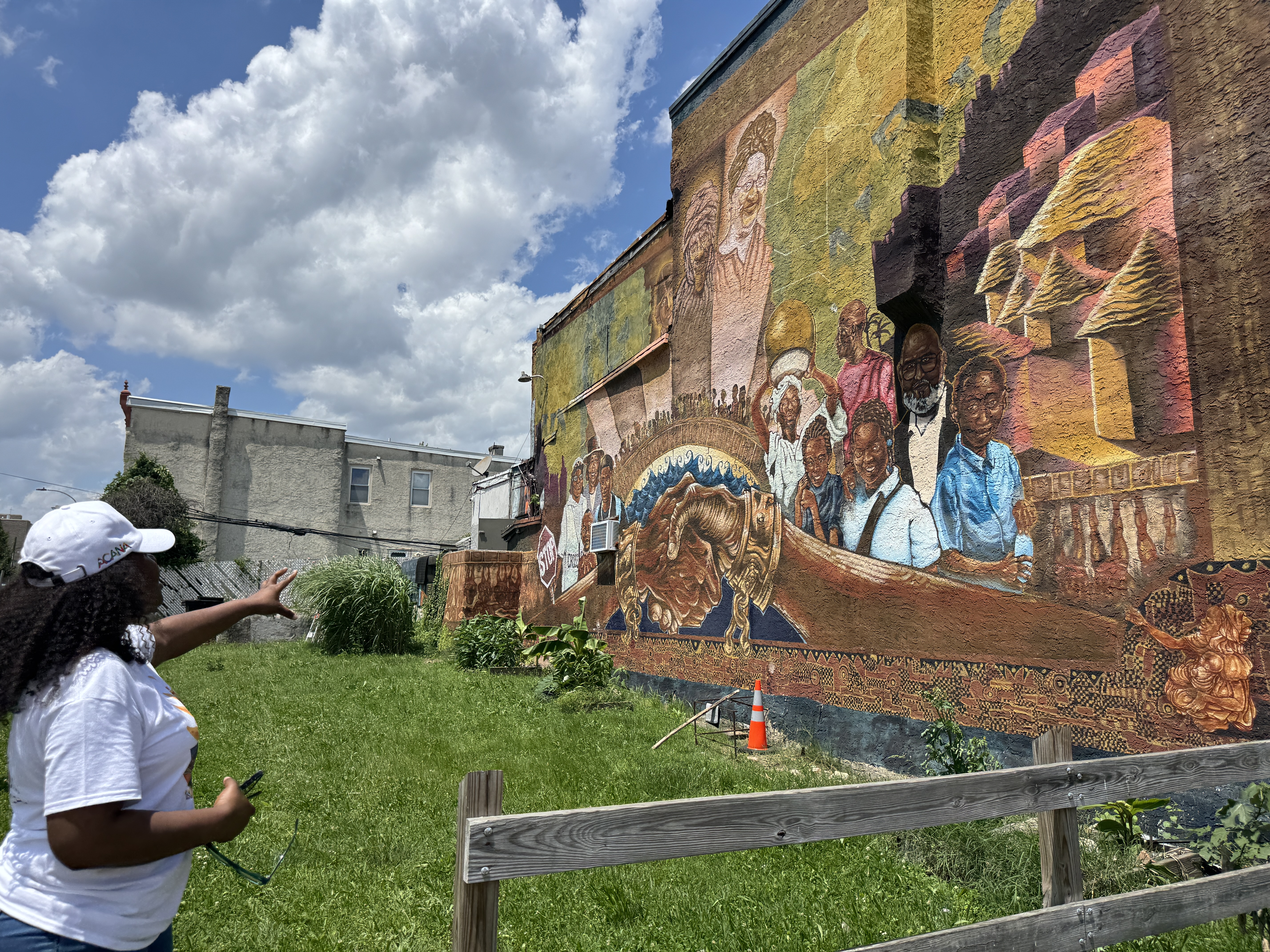
Dolo said ACANA and other organizations are continuing to invest in Africatown to promote economic growth, unify the local community, and advance the area’s goal of becoming a hub for African-owned businesses. Since unveiling the Africatown project in September 2022, ACANA has continued to bring forth new initiatives — including its proposed Unity Marketplace.
People interested in attending the Africatown Food Tour can book the event through WeVenture. More information about the experience can be found on the Africatown Philadelphia website.
“When a lot of people come to Philly, they mostly think of going to places like Chinatown or Old City — nobody ever thinks of going to Southwest,” Saijatu said. “Initiatives like this are really empowering in a way because it also promotes local businesses … and makes people aware that the city has so much to offer.”

